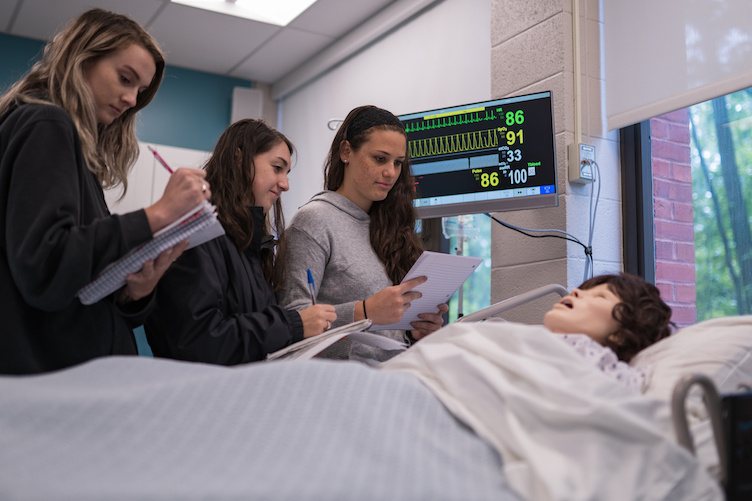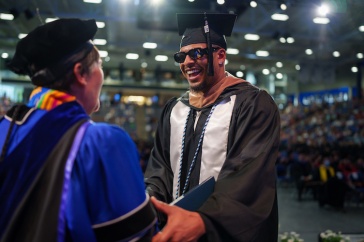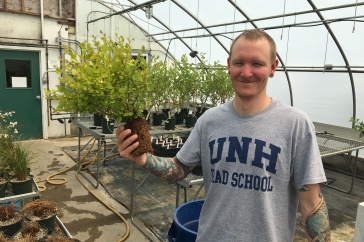
Tess Regan ’19, Kelsey Chadwick ’19 and Kristina Redmond ’19 “question” the nutrition program’s new interactive mannequin.
First-time anythings can be nerve-wracking, and perhaps more so when it’s at the beginning of a career. A recent addition to the College of Life Sciences and Agriculture’s nutrition program helps ease that for newly practicing dietitians through the use of an interactive mannequin.
“Olive” is an integral part of the agriculture, nutrition and food systems department’s new simulation lab. It allows observation of students as they "care" for their lifelike patient that coughs, makes breathing sounds and gives other responses prompted by an instructor who sits behind a two-way mirror and talks through the mannequin.
"This is a way to increase self-advocacy. It’s a confidence booster as much as anything.”
“This will help our students get comfortable with walking into a patient’s room and with how they might react,” says Kevin Pietro, clinical assistant professor of agriculture, nutrition and food systems. “And it will help us see how they might react with the patient and/or family members.”
The simulated learning exercise is geared toward helping students gain critical skills and develop cognitive thinking in a controlled setting. Doing so, Pietro says, has been shown to increase self-efficacy in the clinical area of nutrition and dietetics. “We are confident that similar results will be the case for our students as well,” he says.
Areas of competency that can benefit from simulated learning include honing interview, physical exam, communication and observation skills.
“The actual experience of working with Olive was definitely interesting but very helpful,” says Lilah Chase ’19, a nutrition major with the dietetics option. “It was almost uncomfortable speaking to a mannequin at first, as expected, but I'm glad we can use it as a tool. Learning what to look for, how to assess and ways to diagnose through the use of Olive have helped me in my clinical experience.”
Grace Stott ’20, who is on the dietetics track with a dual major in ecogastronomy, used Olive during a clinical nutrition course that had students split into small groups and ask the mannequin questions about her diet history.
“I found it extremely helpful because as much as we learn about counseling patients, it is hard to imagine what their responses will really be like and how compliant and responsive they will be to your questions,” Stott says. “The mannequin gives us the unique opportunity to learn firsthand what to expect when counseling a patient who may not want to discuss their diet history or other health problems they might have.”
Adds Pietro, “Dietitians are sometimes seen as the food police, so patients aren’t always excited to talk to them. This is a way to increase self-efficacy. It’s a confidence booster as much as anything.”
-
Written By:
Jody Record ’95 | Communications and Public Affairs | jody.record@unh.edu
















































